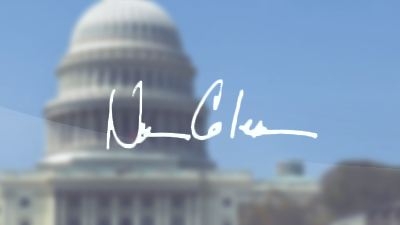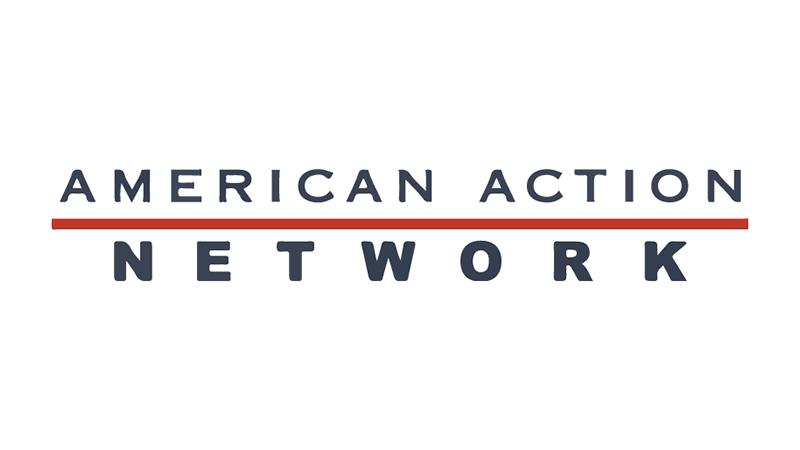Notes from Norm: A Better Way to a Better Life
Throughout my career in public service I have consistently believed that the best welfare program was a job. The best health care plan was a job. The best housing program was a job.
Today, with 45 million Americans, or nearly 15% of the country, living in poverty, it’s clear that the path out of poverty still involves a job – not the benefits provided by government.
Over the past few weeks I have written about Speaker Paul Ryan’s plan for America’s future called “A Better Way.”
This week I complete the series by focusing on poverty, and more importantly, how Ryan believes we can fundamentally change the paradigm we have operated under for decades. A paradigm that holds to the notion that the solution to poverty primarily rests in some form of a government handout.
As Ryan states in his plan overview to tackle poverty, “…if you are raised poor, you are just as likely to stay poor as you were 50 years ago.”
He also asserts what I have felt to be true for a great while: “We need to attack poverty right at its roots. Instead of starting with welfare, we start with work. Instead of expanding government, we expand opportunity. Instead of letting people languish, we get them on the ladder of opportunity and help them climb that ladder so they can make the most of their lives.”
I know it remains fashionable to believe that Democrats have a monopoly of caring about the poor in America. But, many of the very policies and programs that Liberals have promoted and pursued over the years have made poverty worse – not better.
In Minnesota we all know the Norwegian who loved his wife so much he almost told her. My Democrat friends care so much about poverty that they almost do something.
Unfortunately, time and time again their path to poverty reduction always requires more from the government and simply doesn’t solve the problem.
When Bill Clinton made the decision to embrace the welfare reforms implemented by former Wisconsin Governor Tommy Thompson he did so with the clear-eyed understanding that the nation’s existing welfare system simply created a never-ending cycle of dependency and poverty.
Ryan’s “A Better Way” aims to take America forward with tools to reduce poverty by increasing opportunity for all Americans.
These efforts will include:
Reward work. If you are capable, we will expect you to work or prepare for work.
Tailor benefits to people’s needs. We will match poverty-fighting programs with your needs so that it’s easier for you to get back on your feet.
Improve skills and schools. We will make sure that poor kids have more opportunities to succeed at every stage, from childhood through college.
Plan and save for the future. We will make it easier for you and your family to plan for the future and be retirement-ready.
Demand results. We will open up the system to accountability and collaboration, backing ideas that work on the front lines.
The operating assumption in our welfare system should be that it exists to help people through the tough times in their lives, but prepares them to succeed once those tough times are behind them.
Unfortunately, by not requiring those capable of working to do so in return for welfare benefits we are disincentivizing work altogether. There does not exist a culture of work as an expectation for one to have a successful life.
Not only that but by creating a one size fits all welfare program we fail to understand that every individual situation involving someone living in poverty is different and unique.
In addition, because we do not strategically link poverty fighting programs together, and tailor them to individual needs, we often find recipients in worse shape than had nobody helped them at all!
As Ryan’s proposals point out:
“Under the status quo, as people start to make more money, they lose benefits. On its face, that makes sense. But since people are rarely on one program, that loss can be sudden and substantial. That’s why this is often referred to as the “poverty trap.” So, you may get a raise and actually lose money. You may get married and end up worse off financially. In other words, you are punished for working hard and doing the right thing.”
And, fundamentally, if we’re going to succeed in a long-term reduction in poverty we have to start with making sure people are trained to have the skills they need for a life-time of learning and work.
Our education system still lags behind when it comes to addressing the needs of American families struggling to achieve the American Dream.
From changing how we help families pay for a college education, to the nutrition programs they need to make sure kids aren’t going to school on an empty stomach and focusing on the critical needs of at-risk kids, there’s a need to modify our approach to ensuring that kids are successful throughout every stage of their life.
Yet, none of the changes we make will be sustainable unless after you have been able to find a job you are able to build on that success.
That means having the means to save for your future, and prepare for the potential of setbacks in your life.
As “A Better Way” underscores too many Americans lack the tools to achieve this secure financial future.
“Nearly 9.6 million households in America do not have bank accounts. Another 24.8 million households have a bank account but use services outside the financial system. This means people have to hand over money just to cash a check, can’t get access to responsible credit, or have to keep money in unsafe places.”
Ryan’s proposal includes:
- Reforms that expand access to 401(k)s, making it easier for small businesses to band together and provide them for their employees.
- New tools to expand access to basic banking services. This means reining in Dodd-Frank regulations to give you the widest possible array of choices, from community banks to small-dollar lending.
- Reforms that promote access to affordable retirement advice, providing low- and middle-income families the help they need to plan for retirement.
Finally, we must demand results from our efforts. But, without transparency and a true measure of the success, or failure, of our efforts, we will never make a lasting impact on reducing poverty in America.
There are few incentives for government to be transparent when it comes to measuring the impact or success of programs created with the intent of helping Americans put poverty behind them.
Yet, there is every incentive to simply pour more and more money into programs and strategies that we don’t know if they work – or don’t understand what might make them work better for more Americans.
In an election year it is unlikely any of the major candidates for President are going to make reducing poverty a centerpiece of their campaign for the White House. Which reinforces the fact that much of the significant change in America over the foreseeable future is more likely going to happen in Congress than it is in the Oval Office.
Achieving the American Dream remains the holy grail of our American Life. By reducing poverty through creating sustainable opportunity for all Americans, we can find a better way for all Americans to have a better life.


